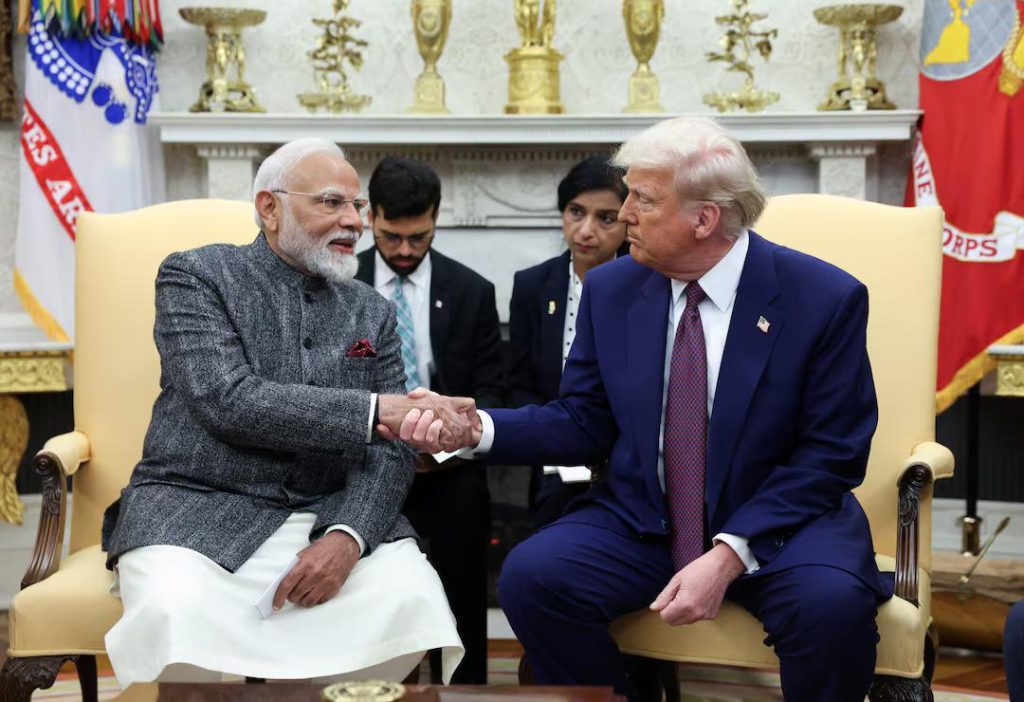
Title: India Will Drop Tariffs to Nothing, They Would’ve Never Done That for Anyone but Me: Trump
In a recent statement, US President Donald Trump claimed that India has agreed to drop its tariffs to zero, citing his exceptional negotiating skills as the reason behind this concession. Trump made these remarks during an interview, emphasizing that India has one of the highest tariffs globally, which the US “won’t put up with.”
Trump’s statement has sparked interest and curiosity among global leaders, business experts, and the general public. The news has also raised questions about the implications of such a move on international trade and the economic relationships between nations.
India’s Tariff Structure: A Brief Overview
Before delving into Trump’s statement, it’s essential to understand India’s tariff structure. India is known for having a complex and multi-layered tariff system, with rates ranging from 0% to 100%. The country imposes tariffs on various products, including textiles, machinery, and electronics, to protect its domestic industries and encourage economic development.
In recent years, India has been under pressure from the US and other countries to reduce its tariffs, particularly in the context of the ongoing trade tensions between nations. The US has been critical of India’s trade practices, accusing the country of imposing unfair tariffs and restrictions on American goods.
Trump’s Claim: An Analysis
Trump’s statement that India has agreed to drop its tariffs to zero is a significant claim that requires scrutiny. While it’s true that India has been under pressure to reduce its tariffs, there is no concrete evidence to support Trump’s assertion that the country has agreed to eliminate its tariffs entirely.
It’s possible that Trump may be referring to a specific agreement or a commitment made by India to reduce its tariffs, but the details of such an agreement are unclear. India has been working to reduce its tariffs as part of various trade agreements and negotiations, but there is no indication that the country has agreed to eliminate its tariffs entirely.
The Implications of a Tariff-Free India
If India were to eliminate its tariffs entirely, it would have significant implications for international trade and the global economy. A tariff-free India would create new opportunities for businesses and investors, particularly those in the US, to enter the Indian market and capitalize on the country’s growing economy.
However, a tariff-free India would also create challenges for Indian industries, which rely heavily on tariffs to protect themselves from foreign competition. The elimination of tariffs could lead to a flood of cheap imports, making it difficult for Indian businesses to compete and potentially leading to job losses and economic instability.
The US-India Trade Relationship: A Complex Web
The US-India trade relationship is complex and multifaceted, involving a range of issues beyond tariffs. The two countries have been working to strengthen their trade ties, particularly in areas such as technology, healthcare, and energy.
In recent years, the US has been critical of India’s trade practices, accusing the country of imposing unfair tariffs and restrictions on American goods. However, the two countries have also made progress in areas such as trade facilitation and customs cooperation, which have helped to improve the efficiency of their trade relationship.
Conclusion
Trump’s statement that India has agreed to drop its tariffs to zero is a significant claim that requires careful consideration. While India has been under pressure to reduce its tariffs, there is no concrete evidence to support Trump’s assertion that the country has agreed to eliminate its tariffs entirely.
A tariff-free India would have significant implications for international trade and the global economy, creating both opportunities and challenges for businesses and investors. The US-India trade relationship is complex and multifaceted, involving a range of issues beyond tariffs. As the two countries continue to navigate their trade relationship, it’s essential to prioritize cooperation and collaboration to promote mutual economic benefits and strengthen their partnership.
News Source:
https://youtu.be/KCplebZOivM






